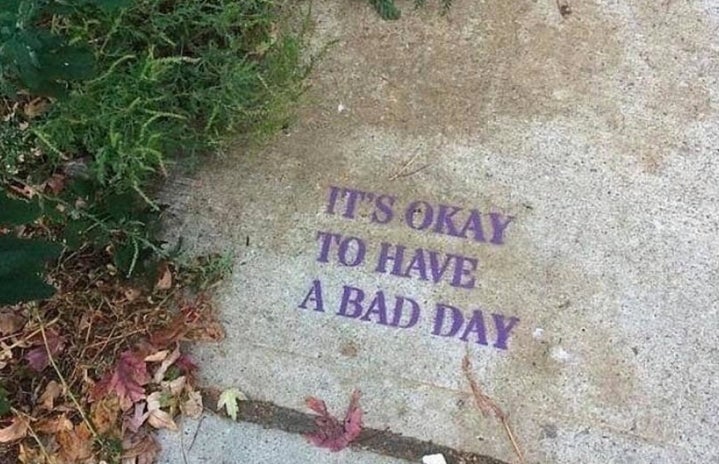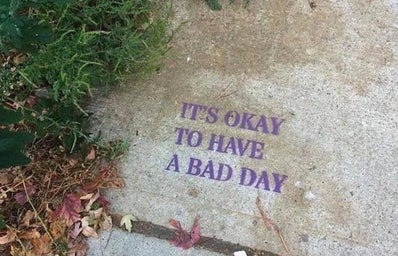College often feels like a never-ending to-do list. Between studying for your classes, maintaining an off-campus job, searching for that perfect summer internship, and engaging in extracurriculars, it’s all too common to feel ‘burnt out.’ And did I mention you somehow have to fit in time to see your friends as well? I’m exhausted just writing about it.
However, there’s a difference between feeling stress and struggling with your mental health. If you’re starting to feel like every day and every task is a chore, or your thoughts are often turning to negativity about yourself and your life, it’s time to explore your options in terms of mental health counseling. Mental health counseling can seem daunting or even inaccessible if you’re a college student. Therapists and psychologists are expensive, and appointments are often booked months in advance. Though it may seem impossible to take the first step in acknowledging your declining mental health, there’s a place that makes all these resources and more available to you: your college campus.
You may believe that your college’s mental health resources begin and end at puppy therapy and homework snack breaks (though, I would never say no to therapy dogs). However, there are innumerable ways to take advantage of your local student health center in order to receive the help you truly deserve. It all starts with the first call—once you take that first step, a weight will be lifted off of your shoulders.
Related: 6 Ways Universities Can Help Reduce the College Mental Health Crisis
- Call your student health center to see what options would work for you.
-
If you’re interested in exploring on-campus counseling, the first step is easy! All you have to do is set up a phone call—or schedule an online appointment if talking on the phone causes you anxiety—and you’ll be prompted to explain your reasoning for coming in and why you would want to see someone. If you don’t feel like pouring your heart out over the phone or online, you do not have to share the intricate state of your mental health. Your school’s behavioral staff simply wants a baseline to ensure you are not a danger to yourself or to others, so answer as honestly as possible!
If you’re unsure about how to contact your student health center’s mental health offices, your university makes it surprisingly easy for you—a lot of important phone numbers on are the back of your ID or found through a quick Google search!
Once you are connected with a representative, you can decide whether an online evaluation or an in-person consultation will be more valuable for your mental health. Personally, if you’re looking into counseling, I recommend an in-person consultation. Having a person there, even for a brief 20 minutes, to relay your stress and anxiety to, can make a real difference and allow the mental health professional to see what would truly be the right next steps for you.
- Decide whether you want group therapy or one-on-one behavioral help.
-
After scheduling an initial appointment, the mental health professional you consulted with will often give you an option of whether to continue on in treatment. By no means do you have to take this recommendation; however, if you’re serious about treating your mental health, it will be valuable to take their words into consideration.
After a brief consultation, the professional will assess the severity of your mental health as you described it to them. However, it is completely within your right to assess your own mental health and state and ask them to reconsider their recommendation. For example, if a mental health professional believes you would benefit from group therapy, and you know for a fact that you would not, let them know! They aren’t magically all-knowing because they happen to study this field. You know yourself best— ensure you get the best care for you.
If you’re interested in pursuing treatment that is close to campus, the mental health professional will either recommend a group therapy setting filled with college students going through the same things as you, or an on-campus behavioral psychologist or therapist. If you’re just exploring therapy as a possible option to combat your stress, anxiety, or depression, these options provide a short-term way to dip your toes in the water of counseling.
- Research how your school can help with insurance plans/financial hardship.
-
However, one of the more stressful parts of receiving mental health counseling is the fact that it doesn’t come cheap. If your depression and anxiety are getting in the way of you be able to live your life, you need to get help. It can seem impossible to balance this between paying for necessities, not having a viable insurance plan, or if you’re even paying for tuition and student loans on your own. Additionally, even if you have your parents’ insurance, if they’re not the most emotionally or financially supportive, you may not want them knowing you’re going to therapy. So how can you combat the added financial stress with your already struggling mental health?
Fortunately, your university understands the importance of your privacy and also the financial anxiety over the cost of getting help for yourself. Many universities provide student health plans, which are insurance plans outside of your parents’ coverage. This is especially helpful, as you’re not paying for insurance outside of tuition, and it provides basic health care coverage without your parents knowing every single medical treatment you undergo. Additionally, if you are on your parents’ plan (you can remain on your parents’ health insurance until you’re 26!), you are over 18— meaning you should probably be transparent with them that there will be charges on their account if you explore outside treatment options or medicine, but that you don’t necessarily need to share with them all the details of your mental health. Many universities, however, provide free services to students with a student plan or health insurance, meaning you can pursue treatment without worrying about your bank account.
- If possible, explore referrals.
-
If you’re presented with on-campus options for therapy and behavioral medicine that don’t seem to work for you, you can always explore off-campus options. At your original consultation, one of the school’s mental health counselors will ask whether you feel as though you want to pursue short-term on-campus treatment or instead pursue off-campus, longer-term treatment. Based on your financial situation, they will provide in-network or out-of-network options that you can pursue based on your comfort level (therapists’ gender, for example). With these referrals, you are able to call these therapists’ or psychologists’ office with your school’s recommendation, which makes it easier to book an appointment.
A referral is a worthy option to explore if you know you would like a more devoted and long-term treatment than your school can feasibly provide. Though a university has many resources to combat poor mental health, they also have thousands of students that they need to help at the same time as well, meaning many of their mental health resources are starting points to help you receive more guidance. If you are able to find a referral to a doctor that works for you, work with your school to ensure that you’re being sent to the best possible care.
- Seek immediate help if you need it.
-
Above all, if you severely struggling and don’t know where to turn— and if you’re at risk of hurting yourself— don’t wait to make an appointment at your local student health center. Either call 911 or your university health center’s emergency line and ask for help. If you’re in the middle of a mental break and you know that a quick behavioral consultation won’t be effective, there is absolutely no shame in undergoing a wellness check or checking yourself into the hospital. Don’t be afraid to ask for help just because you think it makes you weak or you’re afraid of the stigma. You belong here, and though college may be stressful, you will make it through even your darkest days.
Whether you’re trying to assess whether you need help or you’re seeking help for recurring mental health issues, your university is a worthy resource to explore. Don’t be ashamed of taking that extra step to address your mental health — your university is there to guide you through counseling and other therapy every step of the way.


